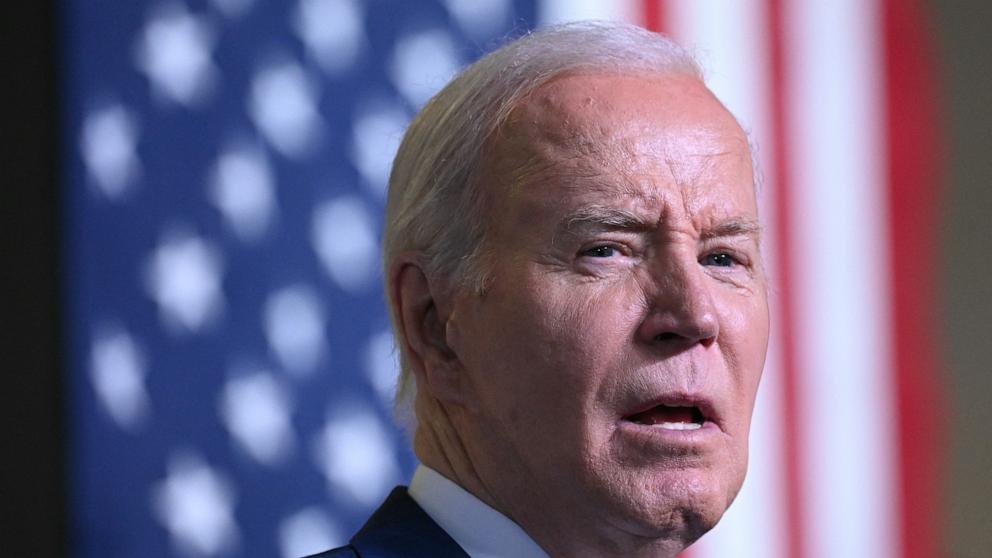


After the war of words between the U.S. and Israel over a planned major military offensive into Rafah, a city in southern Gaza, escalated to new heights over the weekend, the White House is now appearing to be hitting the reset button -- saying it was time to "get back to [the] basics" of the conflict.
"There has been a lot more heat than light in the recent coverage and commentary about the war between Israel and Hamas," national security adviser Jake Sullivan told reporters during a press briefing on Monday.
Sullivan then took more than ten minutes to lay out the Biden administration's view of the war, reiterating many of points officials have been expressing since the days following Hamas' October 7th attack -- Israel's right to defend itself, the moral obligation to minimize civilian suffering, and the urgent need to secure a cease-fire deal in exchange for the release of hostages.
MORE: Israel-Gaza live updates: US aware of American doctors trapped in GazaBut much of the "heat" Sullivan mentions has come from U.S. officials and the administration's intensifying campaign to publicly pressure Israel into backing down from Israeli Prime Minister Benjamin Netanyahu's promise to carry out a large-scale military assault on Rafah, where the U.S. says more than a million Palestinians have sought refuge and where Israel says the last four remaining Hamas battalions are hiding out.
In some of his most critical comments to date, Secretary of State Antony Blinken warned during an interview on Sunday on CBS' "Face The Nation" that Israel's "heavy action" in southern Gaza might leave the country "holding the bag on an enduring insurgency."
Blinken argued Israel's battle tactics and lack of clear plan for the enclave following the conflict put it at risk of unwittingly creating "an insurgency with many armed Hamas left or, if it leaves, a vacuum filled by chaos, filled by anarchy, and probably refilled by Hamas."
MORE: Biden admin doesn't have 'complete information' to verify whether Israel used US arms to violate international law in GazaBlinken's comments came on the heels of a scathing report from the State Department released on Friday that found it was "reasonable to assess" that U.S. arms shipped to Israel had been used in ways that are "inconsistent" with international law against harming civilians.
And before that, President Joe Biden stepped up the administration's effort to coerce Israel into reconsidering its strategy in Rafah with both his words and actions -- pausing a shipment of munitions to Israel and threatening to cut off more.
But so far, the administration's tactics seem to have yielded little progress towards achieving its objectives. Netanyahu has vowed to charge on -- saying Israel will "stand alone" if needed and "fight with [its] fingernails."
Additionally, two critical border crossings in southern Gaza have now been closed for more than a week, reducing the amount of assistance entering the enclave to a trickle after the U.S. spent months steadily increasing the number of aid trucks crossing in each day.
MORE: Coons, McCaul weigh in on Israel report, possible weapons pauseThe Biden administration is also staring down disappointment on another front related to the conflict -- its efforts to broker a deal to free scores of hostages held in Gaza in exchange for an extended truce U.S. officials say could pave the way for a lasting peace.
Before the latest high-stakes round of negotiations broke down last week, U.S. officials had held out hope that an agreement would prevent the situation in Rafah from coming to head. Although Blinken said on Sunday that "different teams continue to talk," that scenario appears all but impossible.
Seth Krummrich, a retired Army colonel and former chief of staff for special operations in the U.S. Central Command, says the dynamics in Rafah could now be encouraging both Israel and Hamas to back away from the table.
"What's happening on the battlefield is extremely important because they're really trying to negotiate from a position of strength," argued Krummrich, who is also the vice president of Global Guardian.
"Our administration is trying to shape behavior, but this comes down to how Hamas and Israel see the world, how determined they both are, and who is going to push through and succeed," he said.
Devising an effective way to balance the U.S. relationship with Israel and the administration's visions for the future of the Middle East will only become more critical, says Brian Katulis, a senior fellow for U.S. foreign policy at the Middle East Institute, a non-partisan think tank.
"A bigger gap looms on the horizon between the United States and Israel: the lack of a consensus about the desired end state in the days and years after the military conflict is over," he said.
"The Biden administration is quietly working with partners across the Middle East to develop plans for the governance and reconstruction of Gaza, but Israel has not yet offered a clear vision of what it seeks in a post-war settlement," Katulis continued. "In both the short term and long term, there may be more bumps ahead."